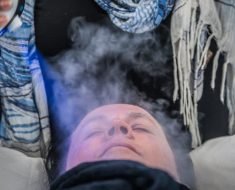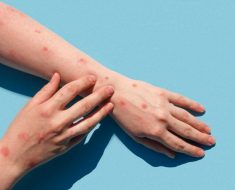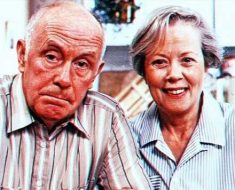
Humans are living longer than ever before, but that doesn’t mean we’re living better. As we age, people have less energy, are more prone to falls and serious injuries, and infections become harder to recover from. The body also goes through some serious changes, with wrinkles and other fine lines becoming more noticeable.
There are anti-aging products that promise the appearance of a younger-looking version of you, but retinol cream and skin elasticity supplements are a temporary fix. They do not correct the underlying problem that’s causing the aging process — but this may soon change.
Scientists are looking at a cancer drug called rapamycin and its potential to slow down aging. A growing number of animal studies have shown evidence of rapamycin extending the average lifespan and slowing down age-related illnesses and weight gain.
Unlike beauty products and hair dyes, rapamycin is not disguising a person’s age but stopping the molecular processes that speed up aging. Now scientists want to see if it works just as well in humans. If so, we may have the closest thing to a fountain of youth.
You’re not the only one getting older — your cells are too. Aging cells become less efficient and are more prone to making mistakes. “Cellular senescence is a state in which cells lose their ability to divide and function properly, contributing to the aging process,” explains Dr. Liam Murphy, a medical doctor at Melbourne Functional Medicine in Australia.
Normally, the body’s immune system clears out damaged cells, but with more aging than healthy cells, this task gets harder to do over time. Unable to get rid of dysfunctional cells, the immune system itself gets weaker and can revert into a pro-inflammatory state that damages the few remaining healthy cells in your system. This overactive and uncontrollable immune response can spread and contribute to age-related diseases, such as cardiovascular disease, neurodegenerative disorders, and cancer. There are even reports suggesting that it’s the inflammation from aging and defective cells that contribute to skin sagging and wrinkles.
Rapamycin stops the body from entering this cellular fate. The cancer drug has been successful in suppressing this inflammatory state, and Murphy says it has helped with limiting damage to neighboring cells and tissues.
Rapamycin works by blocking a protein that activates the mTOR pathway. This pathway is involved in regulating cellular processes related to growth, metabolism, and aging. “The health benefits we seek, namely, to decelerate the aging process, occur by down-regulating mTOR,” says Dr. Carl Giordano, the co-founder and chief science officer for the longevity company Rebesana.
Though scientists will need a little time to see if rapamycin’s anti-aging effects work just as well in humans. One concern Giordano brings up is rapamycin further weakening a person’s immune system. By blocking the mTOR pathway, rapamycin limits the number of immune cells available to fight off the threat. “We will have to wait probably 50 to 70 years to see if we can truly extend our human lifespan and slow the aging process.”
If rapamycin potentially slows down the aging process, does this also slow down ovarian aging? That’s one area of research scientists at Columbia University Fertility Center are interested in exploring.
Girls are born with 1 million to 2 million eggs, but by 30 this number drops to 100,000 to 150,000 eggs. By the time a woman reaches 50, there are only 1,000 eggs left in the ovaries with most women starting menopause at 51.
In a first-of-its-kind human trial, researchers are looking to see if rapamycin can help with preserving egg function and maintaining reproductive hormone levels such as estrogen. If so, women would spend more time living premenopausal and increase the chances of bearing children at an older age. The fifty women — between the ages of 38 to 45 years old — taking part in the trial will receive either a low-dose rapamycin pill for 12 weeks or a placebo. The study is expected to wrap up next year.
It’ll take years before doctors are legally allowed to prescribe rapamycin as an anti-aging treatment, but there are things you can do now to look and feel younger. Regular exercise, minimal stress, sleeping 7 to 8 hours a night, and eating a variety of fruits and vegetables support healthy aging.
Dr. Giordano takes it one step further. He recommends supplements containing either berberine and resveratrol because they target the same mTOR pathway as rapamycin. Both are available today and do not require a prescription. They also have been tested extensively in humans showing very few side effects. “I believe that they should be part of everybody’s diet today,” says Dr. Giordano. “These two molecules are part of my daily routine and have been so for years.”

Image: Now.
You’ve likely heard of resveratrol as the antioxidant credited to red wine’s purported health benefits. This supplement from a family-owned company contains red wine extract so you can get the anti-aging and stress-busting benefits without imbibing.

Image: Thorne.
A favorite of pro athletes (Thorne is the exclusive nutritional supplement partner of U.S. National Teams), this berberine supplement supports metabolism, gut health and immune function.

Source: Read Full Article






